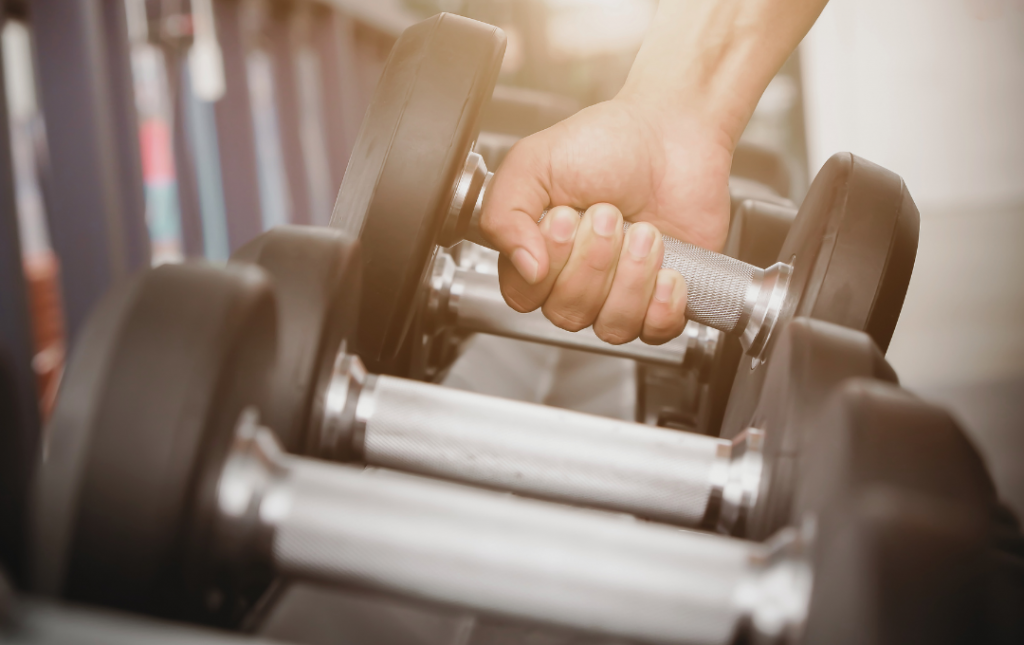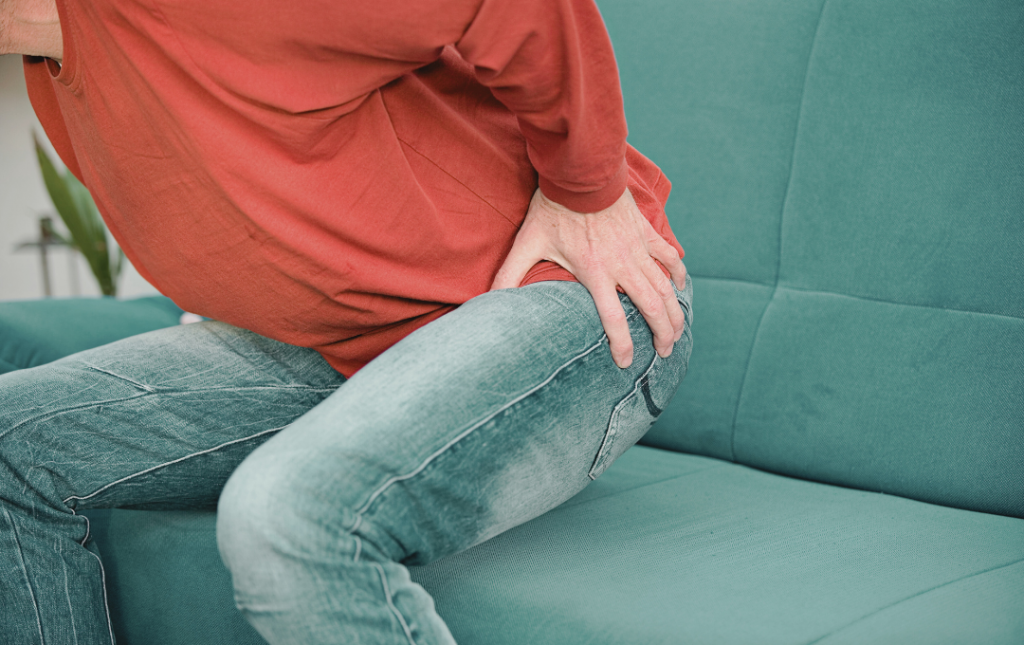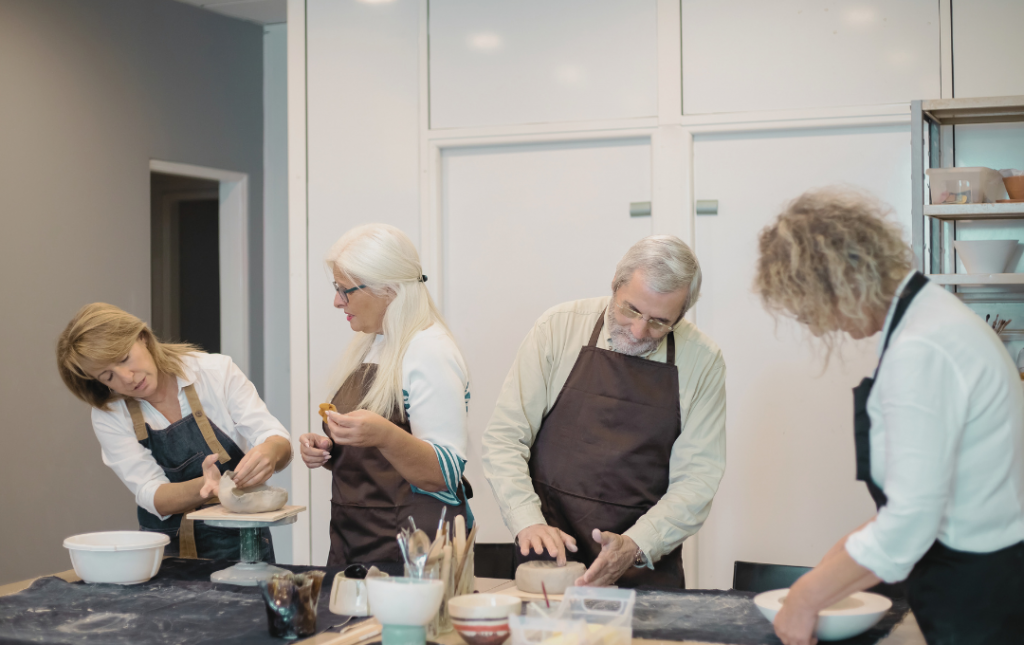
The word hemorrhoids can evoke a sense of discomfort, not just physically, but also emotionally. The common condition can influence daily lives, often disrupting our comfort and limiting our participation in the simple routines and social interactions we often take for granted. When it comes to activities and hemorrhoids, knowing which movements or behaviors might worsen symptoms is key.
While many treatments and remedies aim to alleviate these symptoms, understanding what not to do is equally important, especially when it comes to exercises and hemorrhoids. By recognizing and avoiding activities that trigger flare-ups, you can take meaningful steps towards finding relief, managing your hemorrhoid symptoms effectively, and improving your overall well-being.
HEMORRHOID SYMPTOMS TO LOOK FOR
Life with Hemorrhoids

Hemorrhoids can make the simplest aspects of everyday life uncomfortable. Everyday activities like sitting, standing, performing basic chores, and sleeping can become painful, impacting your well-being in surprising ways. Every day experiences, daily habits, and exercises that aggravate hemorrhoids include:
- Prolonged Sitting:
Certain sitting positions can worsen hemorrhoids. When you are trying to find a position that doesn’t hurt, this can feel unbearable, leading to constant shifting, making you fidgety, unable to pay attention.
- Limited Movement or High Impact Exercise
Even though exercise is generally encouraged for staying healthy, certain exercises and hobbies—like running, cycling, horseback riding, or heavy lifting—can trigger or intensify symptoms. This can make staying active feel risky and discourage people from doing what they enjoy.
- The Strain of Standing:
The constant pressure in your bottom area due to standing for a long time can increase pain, swelling, and general discomfort, especially for people who are overweight and require being on their feet all day.
- Simple Chores
Simple household tasks or even just bending down to pick something up can strain your lower body and worsen the pain. Routine chores can become hard work, leading to exhaustion, frustration, and dependence on others.
- Restless Sleep:
Finding a comfortable way to sleep can become a nightly struggle. Tossing and turning to escape the constant pressure can lead to broken sleep, irritability, and exhaustion.
- The Emotional Impact
The constant discomfort can lead to increased irritability, frustration, and embarrassment, contributing to a sense of isolation, increasing the emotional burden, and impacting mental well-being.
What Activities Make Hemorrhoids Worse?

Hemorrhoids can occur inside the rectum (internal hemorrhoids) or outside around the anus (external hemorrhoids) causing painful symptoms like bleeding, itching, irritation and swelling in the anus. To avoid the development of hemorrhoids or prevent hemorrhoid flare-ups, certain activities should be avoided.
Prolonged sitting and inactivity can contribute to discomfort and digestive problems, potentially exacerbating hemorrhoids. Maintaining a healthy weight and incorporating about 30 minutes of daily exercise, such as brisk walking, aerobic exercise, and flexibility training, can help relieve or prevent hemorrhoid discomfort. Some activities and hemorrhoids do not go well together. Stick to moderate exercise and avoid heavy lifting to prevent pressure on clots or external hemorrhoids until symptoms improve. Both constipation and diarrhea can aggravate hemorrhoids. Keep a food diary to identify trigger foods causing these issues and eliminate them. Increased straining, if you are constipated or during regular bowel movements, can aggravate internal hemorrhoids and lead to fissures. If diarrhea continues, consult a doctor. Certain medications can also cause chronic constipation.
Skipping daily showers and neglecting anal hygiene can worsen irritation and itching. After using the toilet, gently cleanse the anal area with warm water and pat it dry instead of rubbing. Women should use sanitary napkins designed for sensitive skin during menstruation to avoid rashes. In many cases, hemorrhoid symptoms improve on their own within one to two weeks. Adopting simple lifestyle changes like incorporating more fiber into your diet, drinking plenty of water, and using sitz baths may speed up healing and reduce discomfort. However, if there is no improvement in hemorrhoid symptoms after a week of self-care, it is important to consult a medical specialist to address the condition.
CONSULT OUR HEMORRHOID SPECIALISTS
The Hidden Anxiety of Social Engagements

The impact of hemorrhoids extends beyond physical discomfort- it can interfere with everyday activities, and hemorrhoids often don’t mix well. From social activities to intimate moments, the discomfort of hemorrhoids can significantly impact various aspects of life, turning enjoyable activities into sources of anxiety.
Dining out may become stressful due to uncomfortable seating and the frequent need for frequent need to use the restrooms, diminishing the pleasure of the meal and company. Travel-whether by plane or car, can be daunting due to confined spaces and uncertain bathroom access, which can trigger stress and discomfort. Even recreational events like movies or live performances can become a challenge with prolonged sitting and the inability to shift positions discreetly.. Social gatherings, requiring extended periods of standing or offering inadequate seating, can feel like an endurance test, potentially leading to individuals withdrawing from events altogether. Furthermore, the pain and self-consciousness associated with hemorrhoids can create intimacy barriers in personal relationships.
While certain exercises and hemorrhoids can be a challenging combination, avoiding social and physical activity altogether can affect both physical and emotional well-being. Understanding how to manage symptoms while staying socially engaged is a key part of improving quality of life.
Exercises To Avoid With Hemorrhoids
Strenuous exercises or high-impact workouts can put pressure on your abdominal area and anus. Such activities could worsen your hemorrhoid symptoms, leading to increased pain, irritation, or even bleeding.
- Weightlifting
- Cycling
- Rowing.
- Sit-ups
- Squats
- Horseback riding
Safe Exercises for Hemorrhoids: What You Can Still Do
Regular exercise is key for maintaining overall health and well-being. However, the presence of hemorrhoids can make physical activity uncomfortable and painful. These swollen blood vessels in and around the anus and rectum cause itching, bleeding, and general discomfort. It’s quite common for adults to experience hemorrhoids at some point in their lives.
Incorporating low-impact, moderate exercise into your routine can help improve circulation, support digestion, and reduce the risk of constipation—all of which can ease hemorrhoid symptoms.
Exercises for hemorrhoids include:
- Walking
- Swimming
- Yoga
- Pelvic floor contractions
- High planks
- Glute bridges
Treatment For Hemorrhoid Relief
For ongoing or worsening hemorrhoid problems, minimally invasive procedures like hemorrhoid artery embolization (HAE) can offer relief. This non-surgical technique is performed by an interventional radiologist by precisely targeting and reducing blood flow to the swollen hemorrhoidal veins, causing them to shrink. Being minimally invasive, HAE is an in-office procedure prioritizing comfort and quick recovery.
Why Choose a USA Hemorrhoid Center?
Recognizing the significant impact of exercise and hemorrhoids on daily life emphasizes the need for effective solutions. While temporary relief can be found over the counter, persistent or severe cases often require specialized care. USA Hemorrhoid Centers provides a direct path to hemorrhoid symptom relief through focused expertise and patient-centered care.
USA Hemorrhoid Centers is a national leader in providing specialized, non-surgical relief from hemorrhoids. Our experienced physicians offer accurate diagnoses and personalized treatment plans with HAE to help you return to your normal activities without discomfort. We strive to make care accessible by accepting most insurance plans and offering affordable payment options. If you’re experiencing hemorrhoid issues, find a clinic near you and schedule a consultation today.
FIND A TREATMENT CLINIC NEAR YOU
FAQs
If you’re experiencing anal pressure, lying on your side with a pillow between your knees could offer relief and improve your comfort level.
Similar to weightlifting, straining to lift heavy objects, such as groceries, luggage, or furniture, can elevate abdominal pressure and aggravate hemorrhoids. It’s important to remember to use your leg muscles and maintain a straight back when lifting.
Regular, moderate walking is generally good for preventing and managing hemorrhoids and maintaining overall health.
